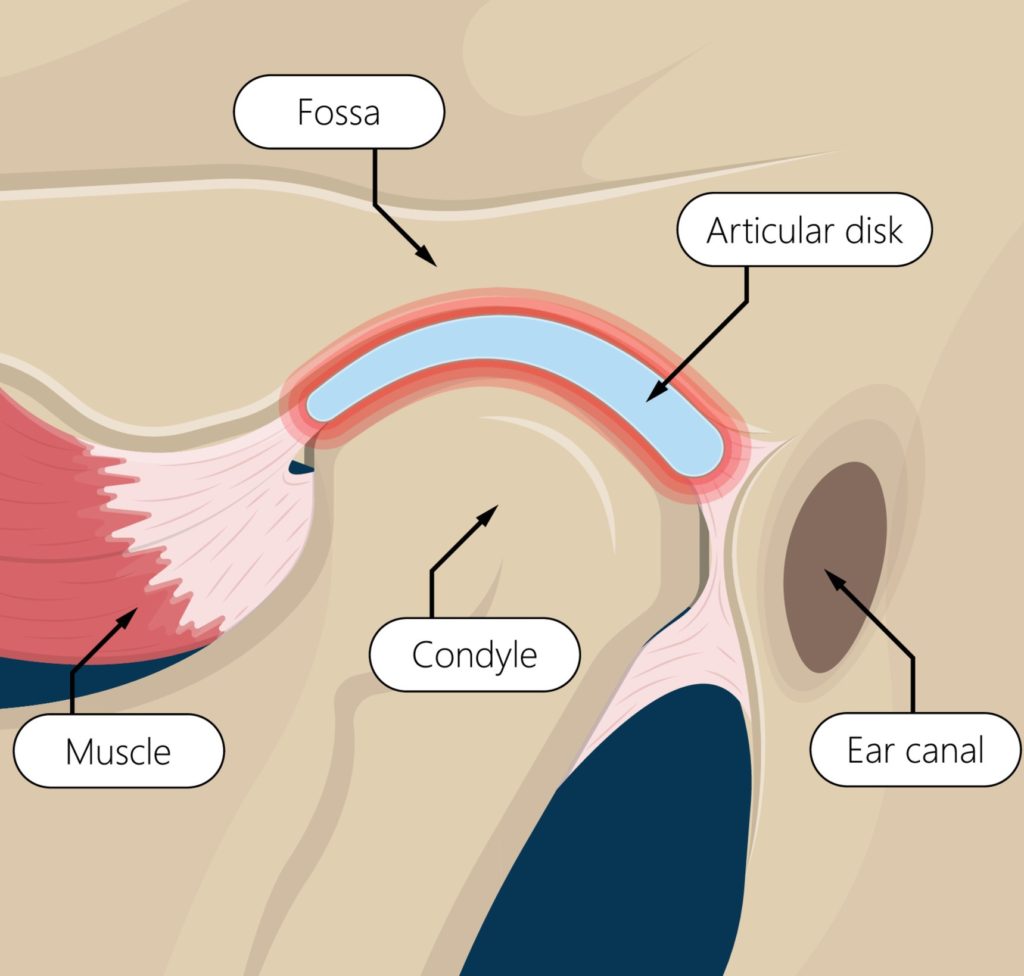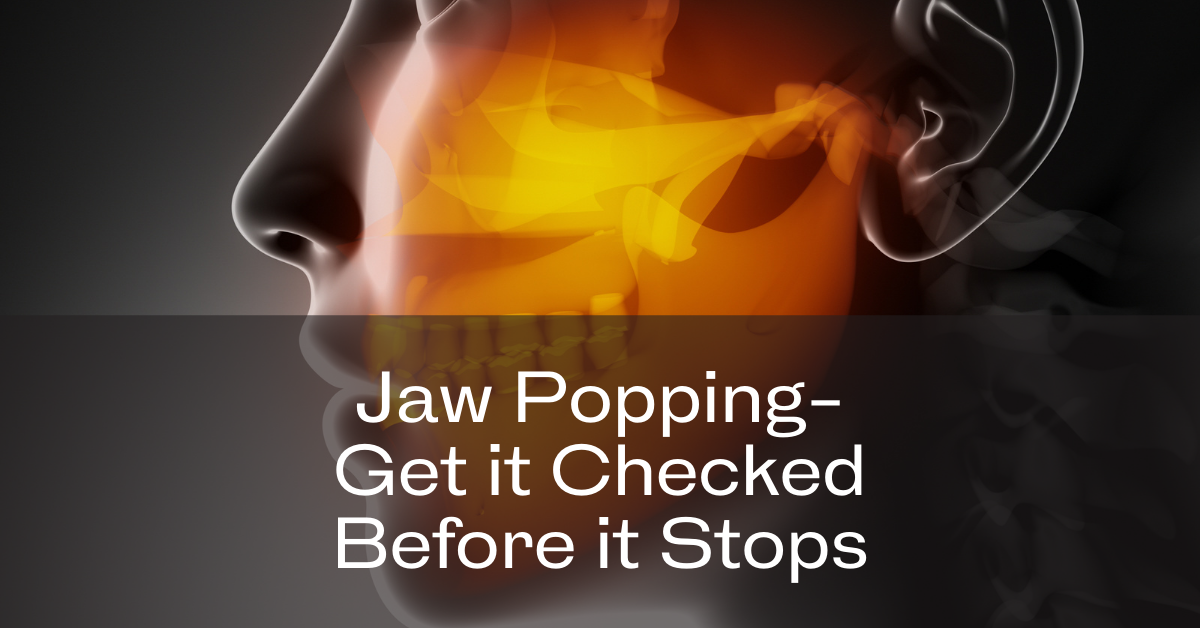Jaw popping is common and the majority live with it – why?
Most likely, people deal with jaw joint popping because they don’t have any pain, and if they do it is minimal. One of the most common characteristics of a Temporomandibular Joint Disorder is the presence of popping and other noises with movement of the jaw. These noises are usually described as popping, clicking, crunching, or grinding and occur when chewing, yawning, and speaking. It is important for people to know that these noises are not normal.
If you have jaw popping, you have a jaw joint disorder.
Jaw popping that stops suddenly isn’t a good sign, it is an indicator that the condition is getting worse. We see patients who report that their jaw stopped popping and with it came severe pain, and sometimes locking.
To explain why this happens, we will quickly go over the basic anatomy of the jaw joints. Start by placing your finger right in front of the ear, by the tragus. The tragus is the thick cartilage right outside of your ear canal. You will feel the top of your jawbone slip forward. The tops of your jawbones are called condyles. As you open your mouth, picture your condyle sliding into the socket. In healthy joints, the condyles glide smoothly over the socket because of the articular discs. The articular discs act as cushions between the condyle and socket.

Popping is experienced when an articular disc moves from its normal position and is pulled back into place. The disappearance of this noise should cause concern because it can mean the disc has been completely displaced. This is when the pain starts. Complete disc displacement means there is no longer a cushion; therefore, you have bone on bone contact as the condyle now grinds against the socket.
Our best advice?
If you have jaw popping, schedule an appointment with our office before the it stops!
